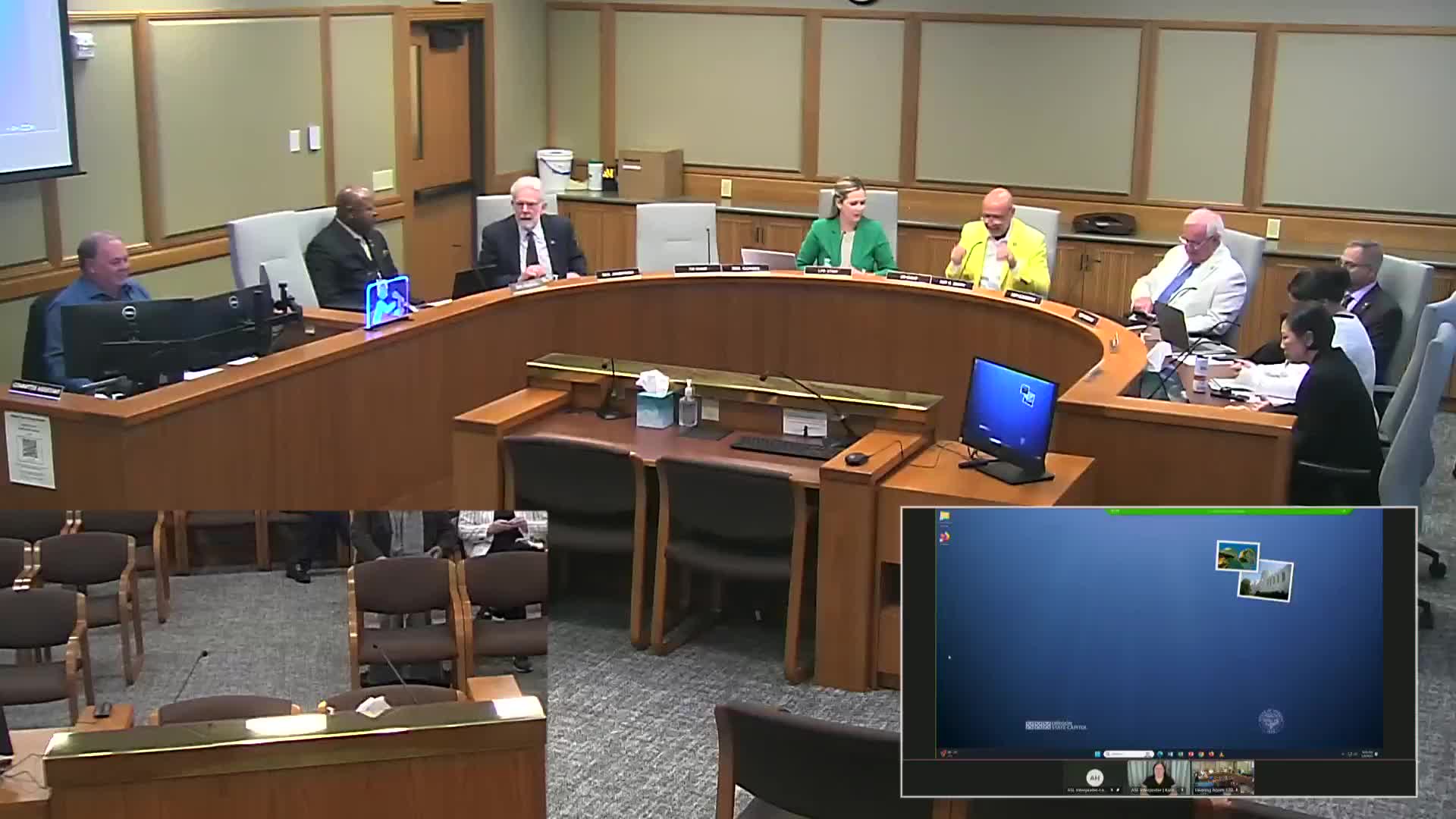Subcommittee OKs LFO recommendation to advance $7.09 million budget for Oregon Government Ethics Commission
Get AI-powered insights, summaries, and transcripts
Subscribe
Summary
A Ways and Means subcommittee voted to advance Senate Bill 5522, approving a $7,093,909 other-funds budget and 15 FTE for the Oregon Government Ethics Commission and recommending the bill to the full committee; members discussed rising caseloads, serial complainants and planned upgrades to case-management and filing systems.
The Joint Committee on Ways and Means, Subcommittee on General Government on May 6 voted to advance Senate Bill 5522 as amended, approving a Legislative Fiscal Office (LFO) recommendation for a $7,093,909 other-funds budget and 15 full-time equivalent positions for the Oregon Government Ethics Commission (OGEC).
The LFO recommendation represents a 24.5% increase over the 2023–25 legislatively approved budget and a 21.9% increase over the current service level, the LFO staff told the subcommittee. The increase reflects standard personal-services growth, inflation for services and supplies, and one-time costs to upgrade the commission’s case-management and electronic filing systems.
Lawmakers pressed OGEC staff on the surge in filings and the costs that follow. “We have complainants who just file one complaint after another,” Susan Myers, executive director of the Oregon Government Ethics Commission, said, describing both individuals who repeatedly file complaints and situations in which a former employee files against multiple local officials. She said OGEC is required to open a preliminary review if a complaint appears to allege a statute within its jurisdiction and within the four‑year time limit.
Subcommittee members asked whether the additional funding and the planned system upgrades will help the commission manage its caseload. Myers said the package will fund a move to a cloud‑based case-management and electronic filing system and associated costs for reviews and work with the Department of Justice; the additional appropriation is for system upgrades and related operating expenses rather than new permanent staff. LFO staff and OGEC summarized five policy packages included in the recommendation that together total about $1.3 million in other-fund expenditure limitation.
The packages described by LFO and OGEC staff include a $600,000 increase to address higher legal costs from a larger volume of advice requests and investigations; a $40,000 increase to cover personal‑services differences tied to a position reclassification approved by the Department of Administrative Services Chief Human Resources Office; a $75,000 package to fund additional in‑person and remote training (about $42,000 for system updates and subscriptions and $33,000 for in‑state travel); a $300,000 one‑time increase for case-management and electronic filing upgrades; and a $259,000 one‑time carryforward adjustment for earlier‑planned upgrades not completed in the last biennium. The LFO projected an ending balance of about $685,224 (roughly 2.3 months of operating reserves) under the recommended budget.
Committee members also described the practical cost of repeated complaints for local governments. “Those individuals that make the complaint have nothing to lose,” one senator said, calling serial filings a potential form of harassment that forces repeated defense costs on agencies. OGEC explained that the commission’s initial two‑day screening looks only at whether the complaint alleges a violation within jurisdiction and the statutory time window, not at complainant motivation.
Subcommittee members moved and approved LFO’s recommendation for the dash‑1 amendment, approved the commission’s key performance measures as proposed, and moved Senate Bill 5522 as amended to the full Ways and Means committee with a “do pass” recommendation. The package was to be carried to the Senate floor by Senator Manning and to the House floor by Representative Tran, as the subcommittee recorded.
Material provided to the committee and posted on the Oregon Legislative Information System (OLIS) included the LFO recommendation and the dash‑1 amendment. The panel closed the work session with a reminder that the next day’s agenda would include an informational hearing on internal controls from the State Treasurer and the Department of Administrative Services.
